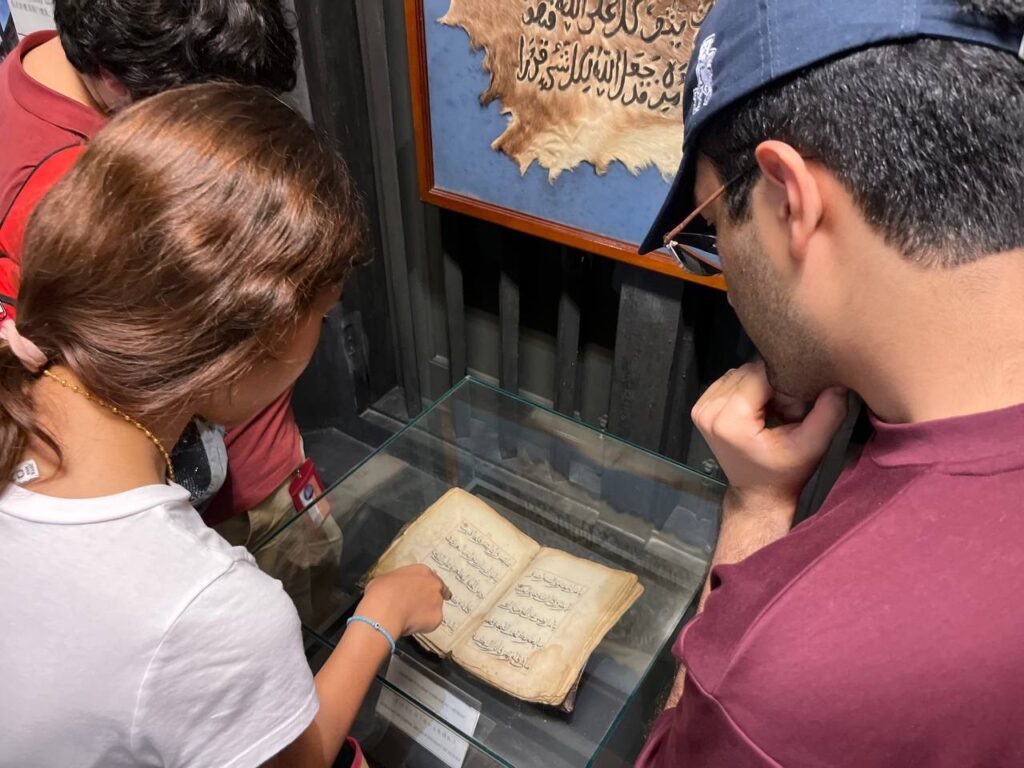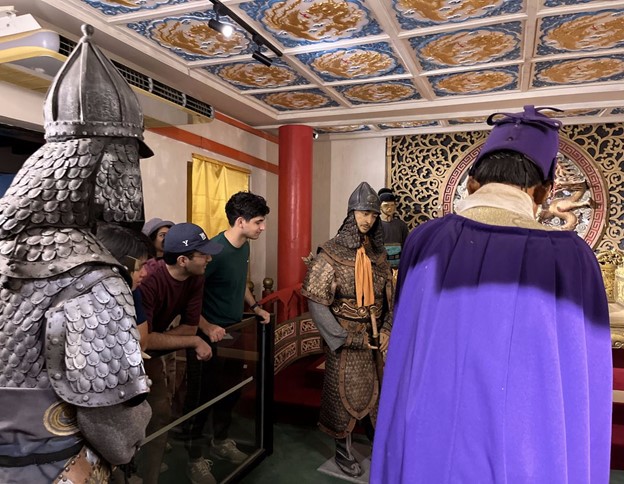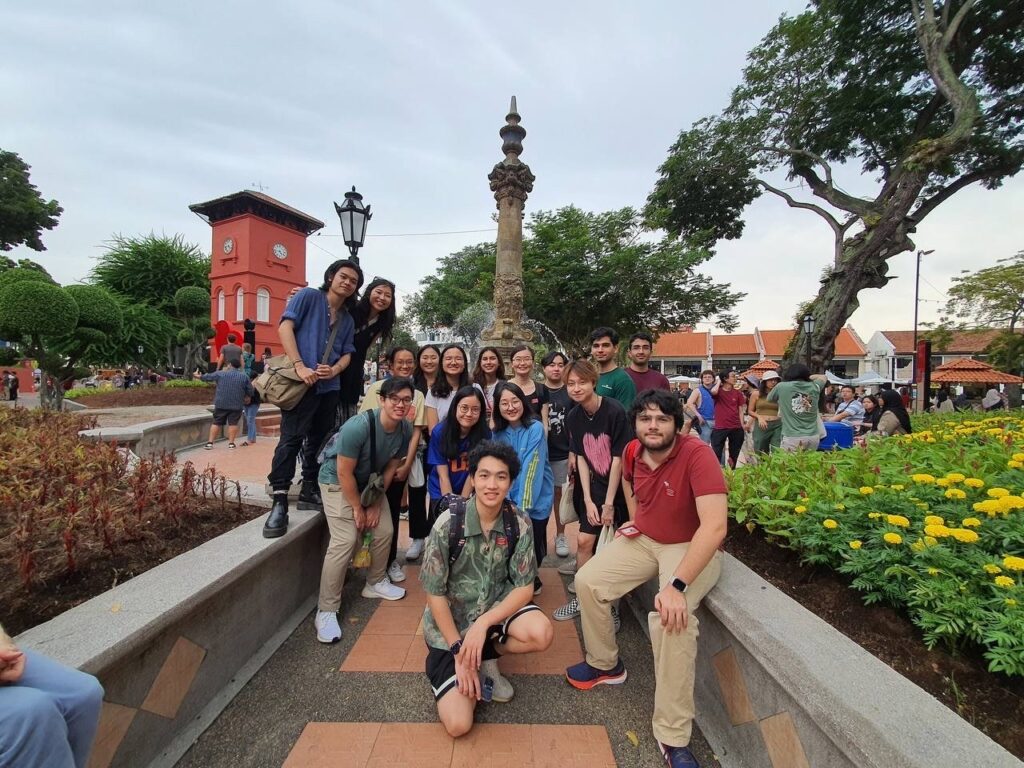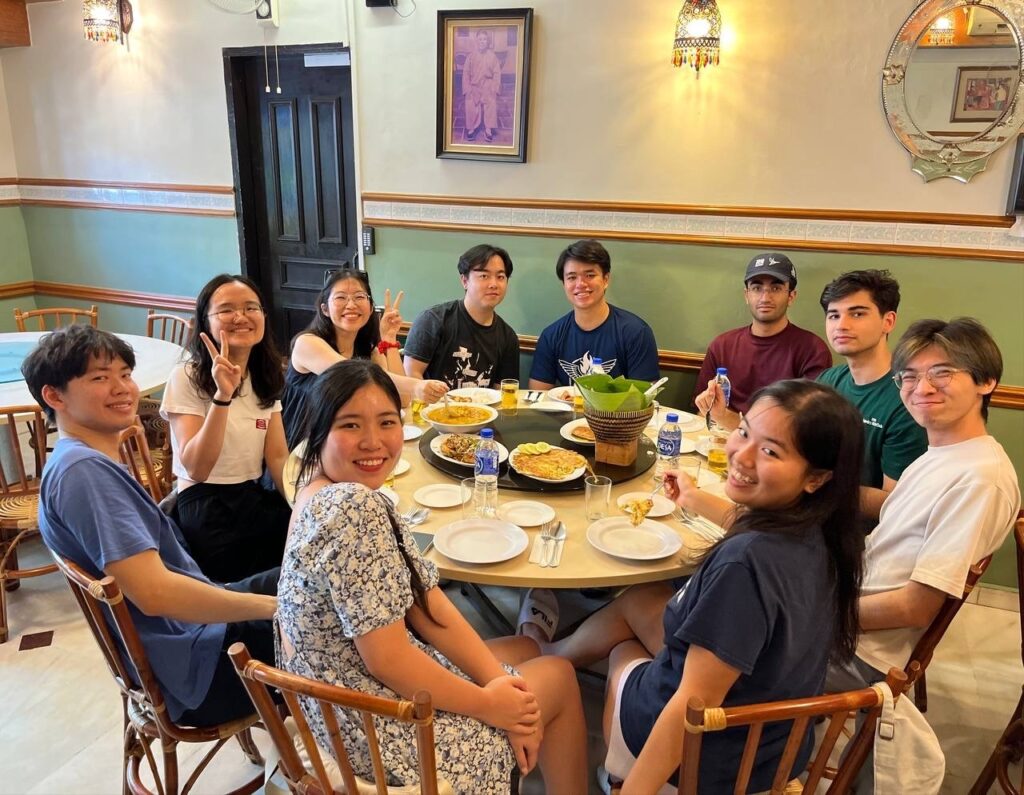Celebrating the journey: Yale-NUS College's Ming Imperial Voyages course
Integrating history and interdisciplinary learning: Yale-NUS's Common Curriculum culminates with hands-on Historical Immersion courses
As Yale-NUS College approaches the final round of its unique Common Curriculum courses, one of the courses taught this semester is the Ming Imperial Voyages course. Taught by Associate Professor of Humanities (History) Claudine Ang, the course, which is part of the Historical Immersion (HI) segment, stands distinct in its approach, combining rigorous academic study with hands-on experiences. It is a fitting tribute to the Common Curriculum’s journey, which has been instrumental in providing students with a broad, interdisciplinary perspective on global issues.
The Common Curriculum at Yale-NUS is a sequence of 10 interdisciplinary courses that introduces students to a multitude of thought processes from a global standpoint. Unlike the rest of the Common Curriculum courses, which ranges widely across space and time, HI courses delve deep into understanding the past, asking the question, “How do we know what we know?”
The Ming Imperial Voyages course also stands out in its approach to historical studies as it encourages students to analyse various historical sources to form their own interpretations. This method resonates with the interdisciplinary ethos of the Common Curriculum, as it draws from and contributes to other areas of study, such as Literature and Humanities.

Beyond the classroom
One of the highlights of this course was the class trip to Malacca held from 10 to 11 November. Students had the unique opportunity to visit historical sites, engage with local practitioners, and participate in activities that brought their classroom learning to life. These experiences enabled students to form a deeper connection with their studies, as they could see and touch the objects they had learned about.

Aidan Baars (Class of 2025), reflecting on his experience, said, “It was very interesting learning about the Chinese expansionism in Southeast Asia.” He contrasted this with the more commonly known European expansionism, finding a new context of historical understanding.
The trip to Malacca held special significance for Aidan, as he believes it has enhanced his understanding of the city’s diverse colonial past. He noted, “We were able to learn more about foreign/colonial presence in Malacca… During our trip in Malacca, we were able to analyse the extent of their presence, ranging from cultural to military presence.”
Furthermore, Aidan appreciated the course’s concentrated focus on the Ming Imperial Voyages, which he finds distinct from the broader approach of other Common Curriculum courses, especially how the course taught students to critically analyse and critique both primary and secondary sources.

Sumin Kang (Class of 2024) also shared her enthusiasm for the course. She was particularly fascinated by how “Zheng He’s voyages in Southeast Asia and how history could be recorded differently and the various interpretations of historians”.
The Malacca trip, for her, was a vital part of the learning experience, allowing her to connect classroom discussions with real-world contexts. She remarked, “The trip to Malacca definitely added to my excitement about the subject matter as we got to physically visit places that we read about during class. It was memorable to also learn about the contemporary disputes surrounding the monuments.”
Sumin found the course’s focus on a single historical topic and its interdisciplinary approach a standout feature. She resonated with the lesson on ‘innovative scholarship’, where diverse historical interpretations were explored. “Learning how to interpret historical sources in a way that is more creative but substantial and valid at the same time is a very valuable takeaway,” explained Sumin.

As Yale-NUS College concludes the final phase of its Common Curriculum courses this semester, the Ming Imperial Voyages course stands as a testament to the College’s commitment to providing an educational experience that is both academically rigorous and experientially rich. The course, under Assoc Prof Ang’s guidance, not only educates but also inspires students to see history as a dynamic and multifaceted discipline.





